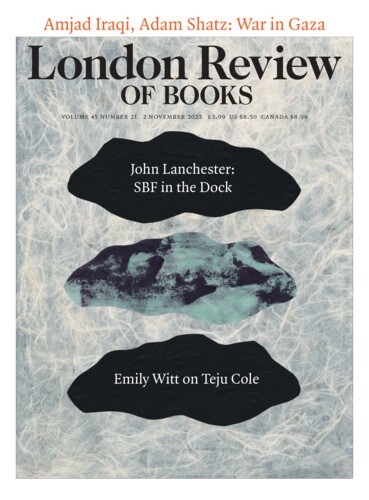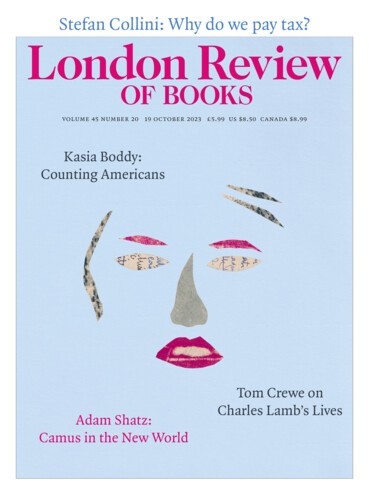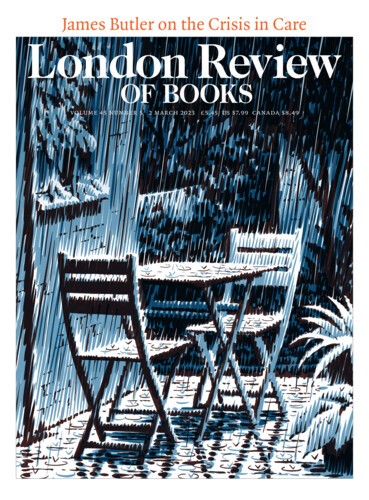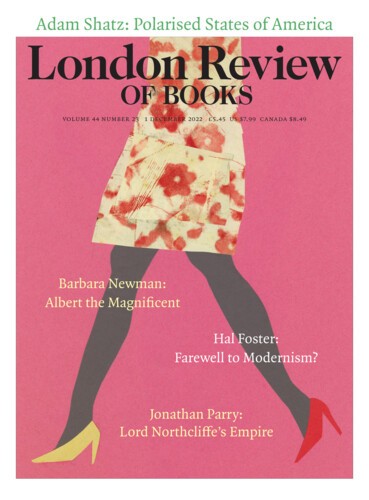Vengeful Pathologies
Adam Shatz, 2 November 2023
On 16 October, Sabrina Tavernise, the host of the New York Times podcast The Daily, spoke to two Palestinians in the Gaza Strip. ‘So, Abdallah,’ Tavernise said to Abdallah Hasaneen, a resident of Rafah, near the Egyptian border, who was only able to get a signal from his balcony, ‘we’ve been talking about all of the air strikes that have been...





